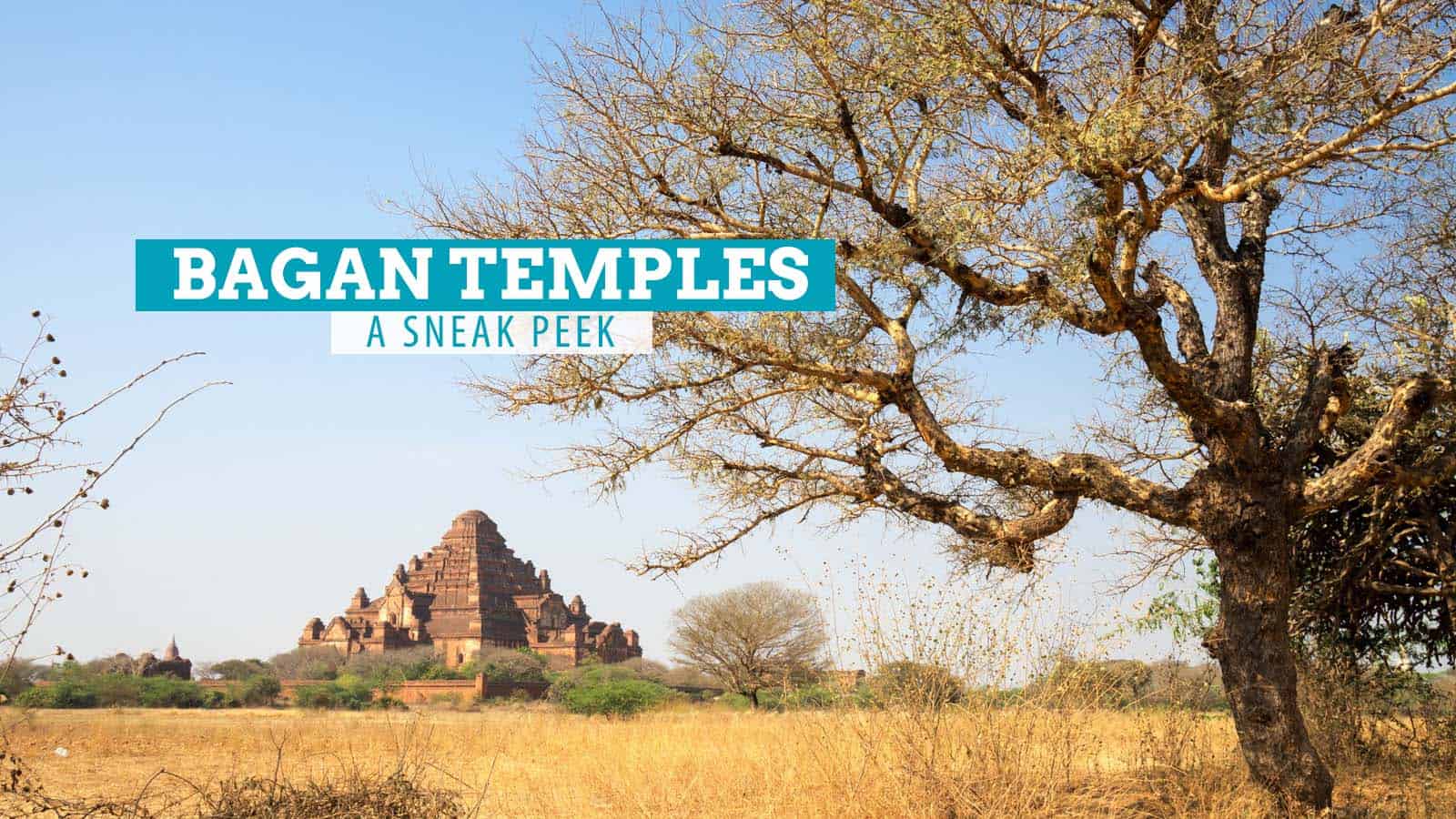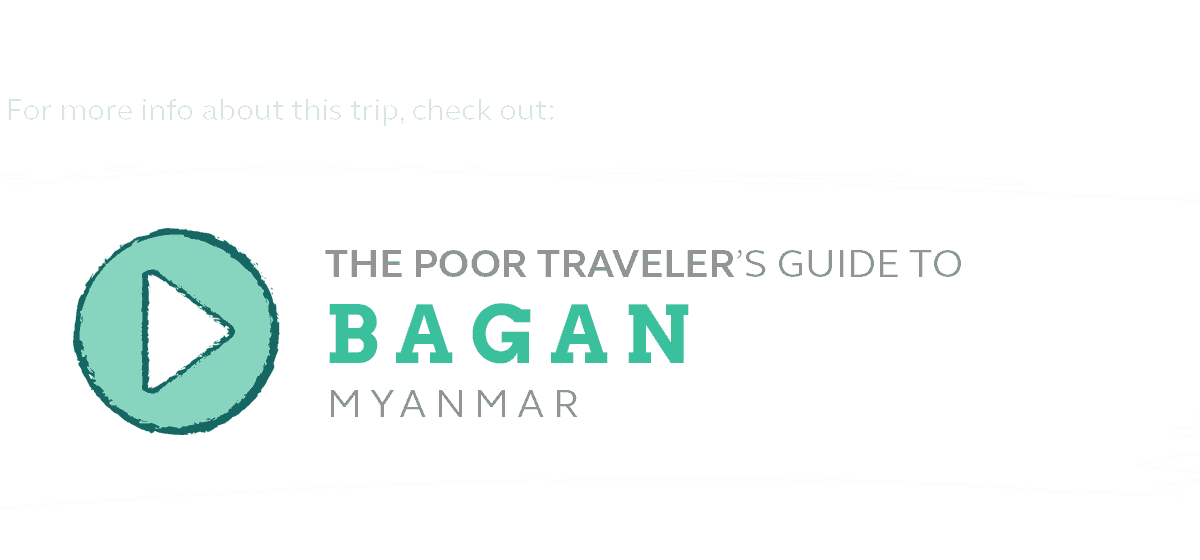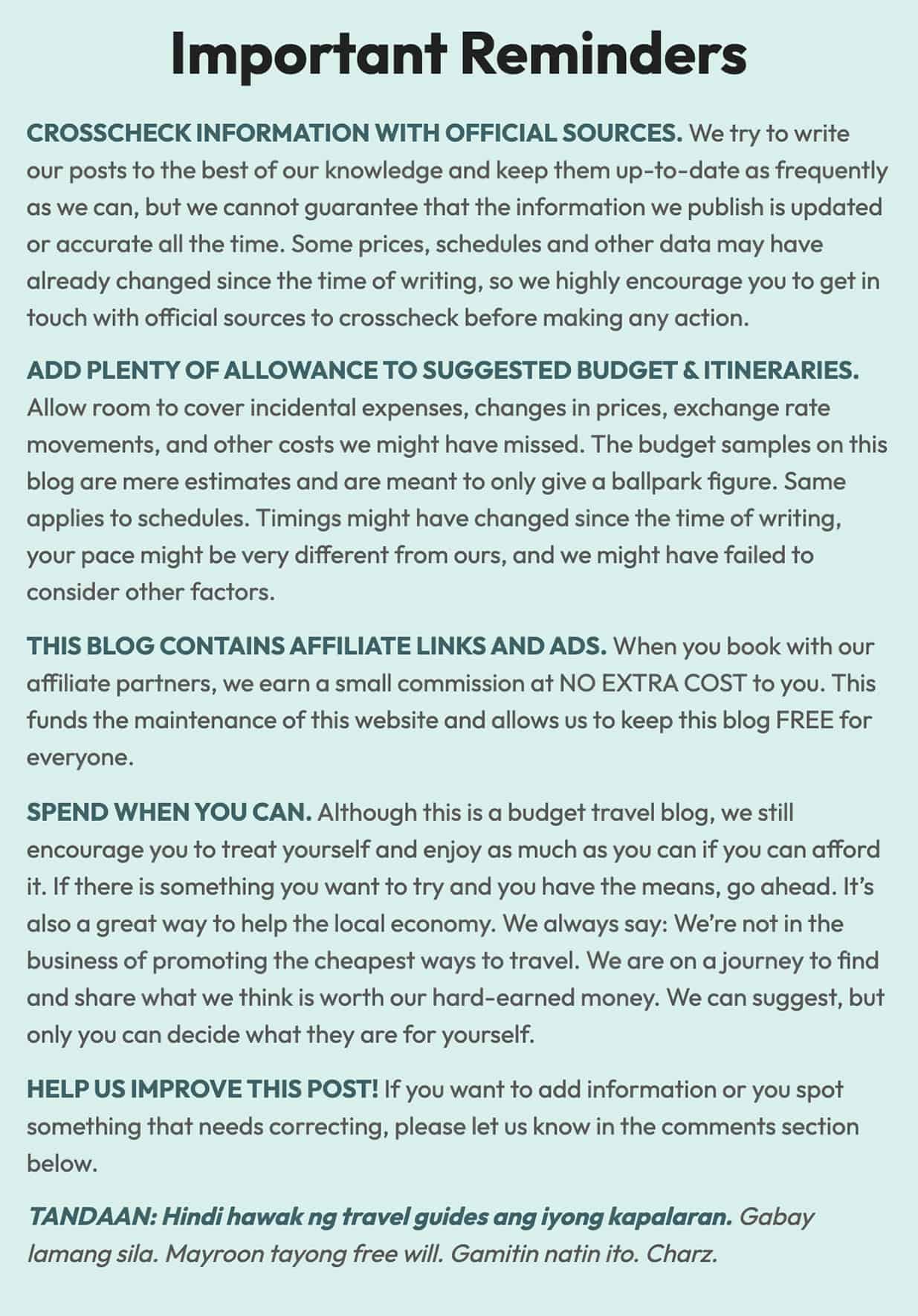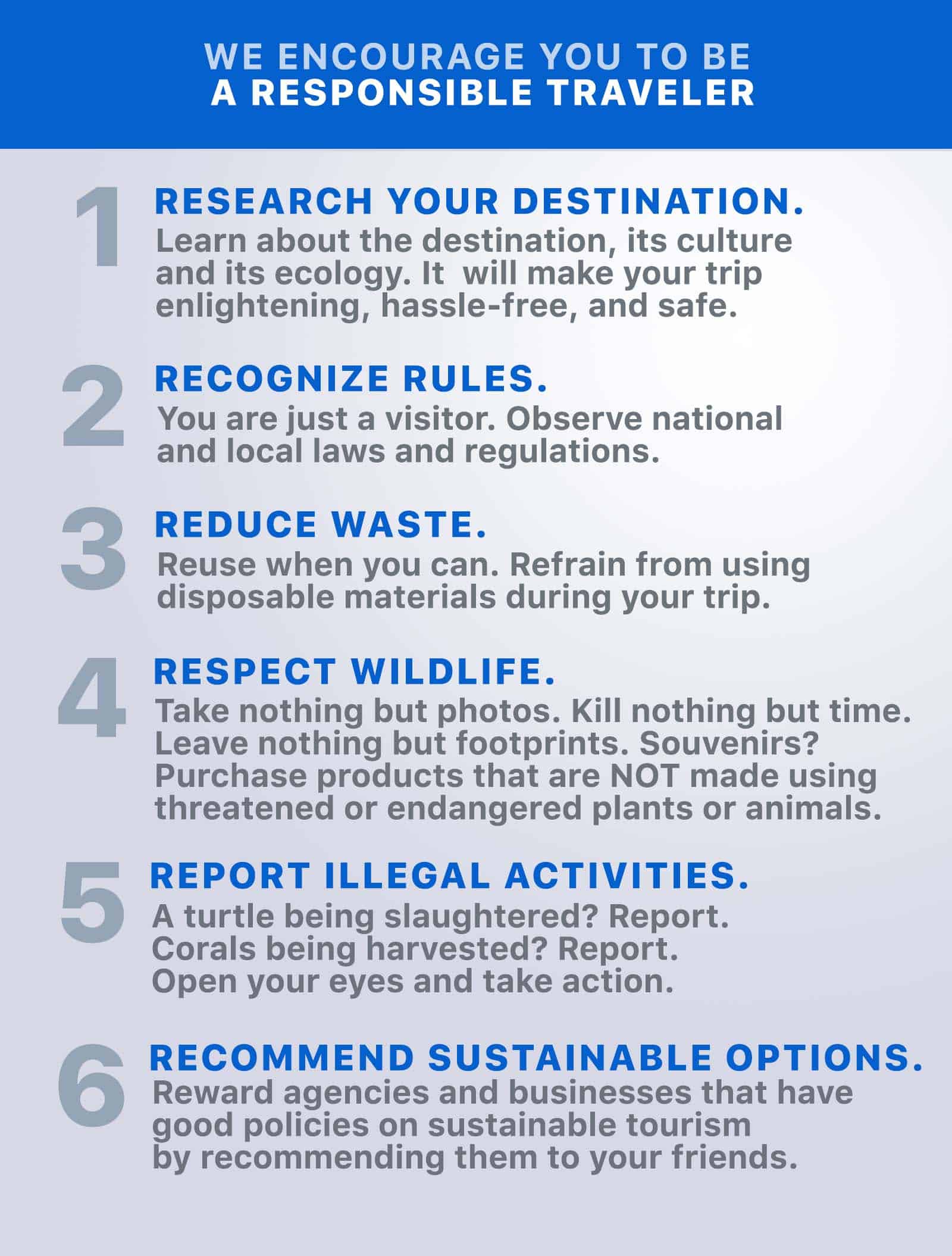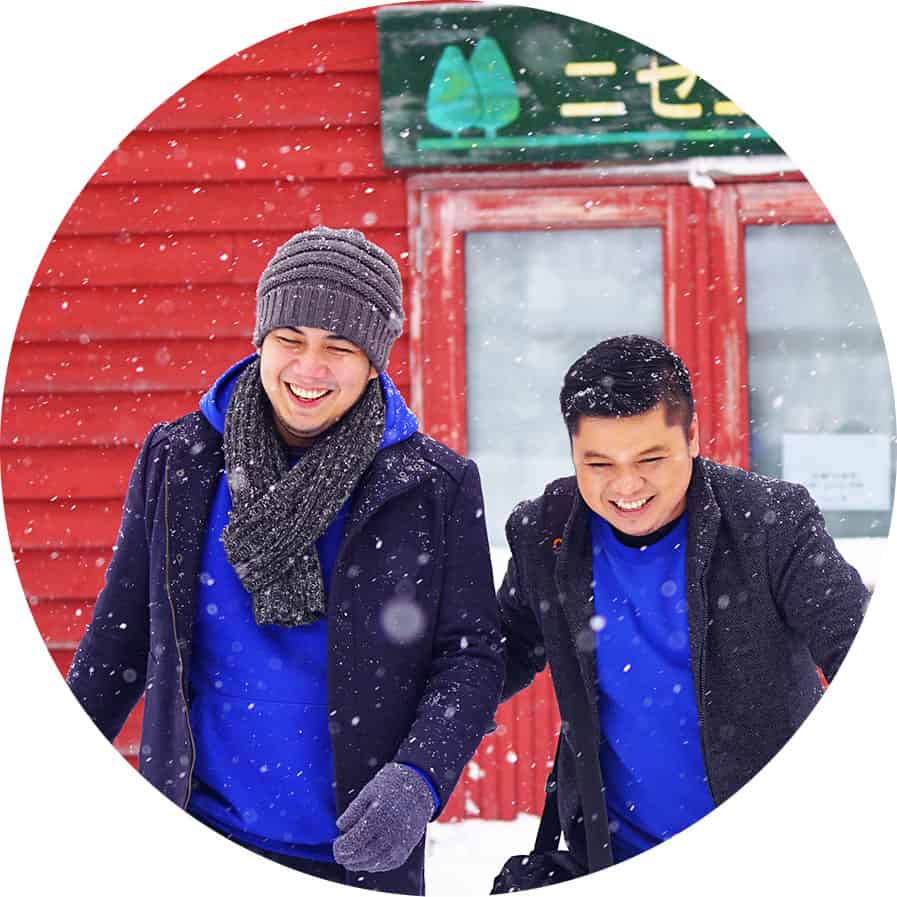Bagan can be overwhelming even for the most seasoned of travelers. First, the natural conditions can be unforgiving, sometimes unbearable. If you visit in the wrong month, you’ll be wiping thick layers of dust off your face in the 43C heat. Second, the sheer number alone is daunting. Over 2200 temples and pagodas! I always joked that if you close your eyes and throw a rock aimlessly, you’re probably going to hit one. And lastly, an ocean of ancient structures that stand not too far from one another isn’t easy to navigate.
Okay, right now I’m just making excuses for starting our journey lost. The truth is, the Bagan Archaeological Zone can be quite confusing on the first day. Looking at the map, we immediately assumed that since the key temples were marked, it would be easy to find them. But not all the pagodas and stupas are on the map. While you’re at one, you can already see the next and the one next to it. It’s easy to mistake one for another. Excuses, I know. I’m just an idiot.
But no matter how you start your day, Bagan has a way of blowing the bad vibe away, dust and all. The locals are some of the nicest, friendliest I’ve met ever. Everyone we asked willingly equipped us with the much-needed directions (which we may or may not have remembered) that led us to the some of the site’s major temples.
Major temples, eh? Yes, major temples, because not all temples were created equal. (Some are not even temples.) These are usually the biggest and most historically significant (not always, though). The downside is, these are also the most crowded.
Remember: make sure you wear clothes that cover your shoulders and knees, and remove shoes and socks when you enter. These sites are sacred to the locals so please respect their culture.
Here are photos of seven of Bagan’s most popular temples and pagodas with a little bit more info just to keep your expectations in check.
1. Shwesandaw Pagoda
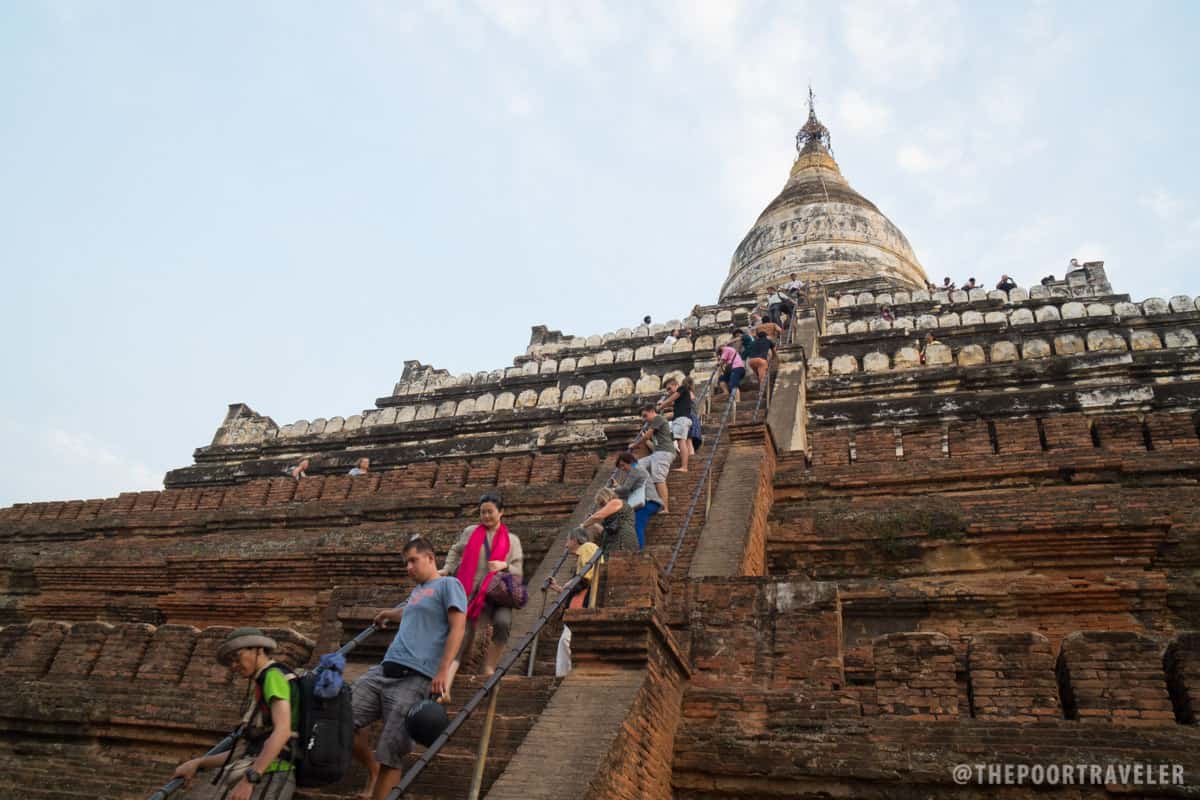
Old Bagan. The sunset pagoda. This is the place to be if you’re looking for a wonderful panoramic vista of the site especially during sunrise or sunset. Constructed in 1057 under the rule of King Anawrahta, it was once adorned with terra cotta tiles that depicted scenes from the Jataka. It also shelters the sacred hairs of Gautama Buddha. Beware: super crowded at dusk.
2. Ananda Temple
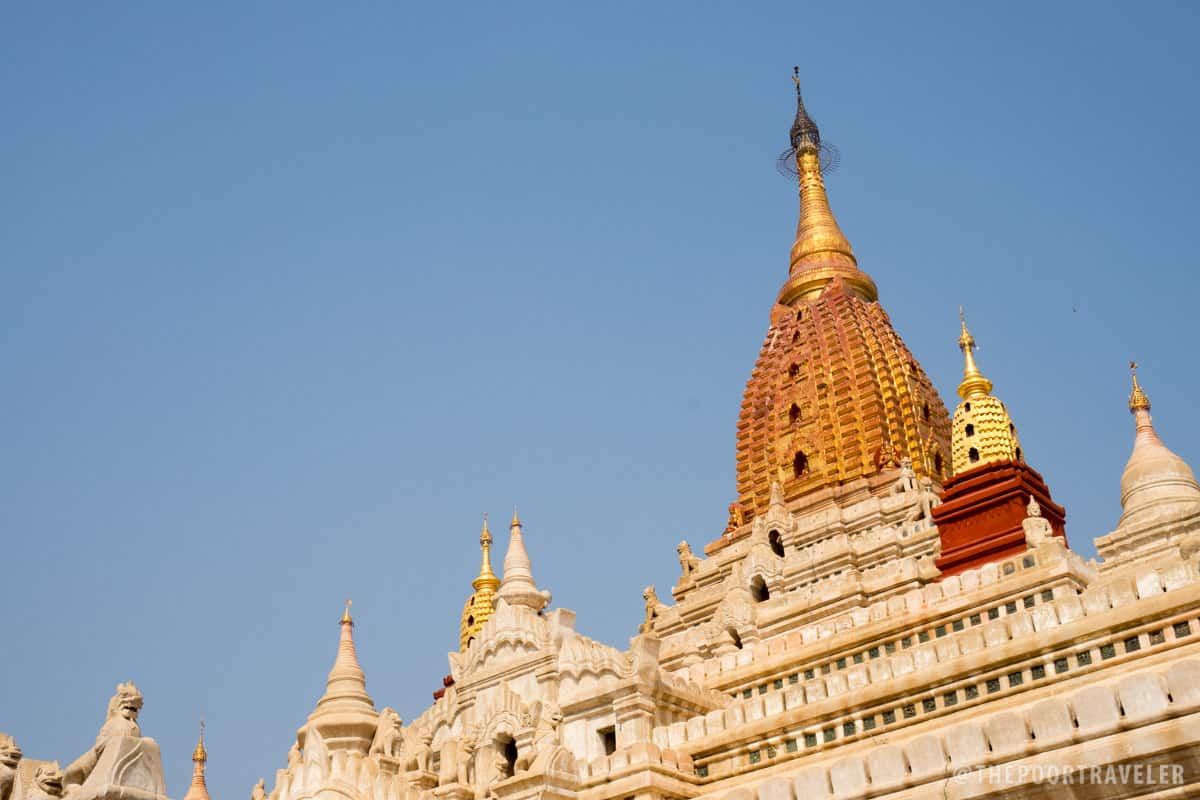
Old Bagan. Built by King Kyanzittha in 1105 AD, it is arguably the most breathtaking of all the temples in Bagan. Its intricately designed spires are coated in gold. It’s also the one in the best condition, showcasing a unique architecture that is a mixture of Mon and Indian. The temple has four standing Buddhas: Kassapa Budhha facing south, Kakusandha Buddha north, Konagamana Buddha east, and Gautama Buddha west. Legend has it that its monk architects were slain by the King so they won’t be able to build similarly designed structures. We stayed here for a long time, taking pictures and resting under the trees near the south gate.
3. Dhammayangyi Temple
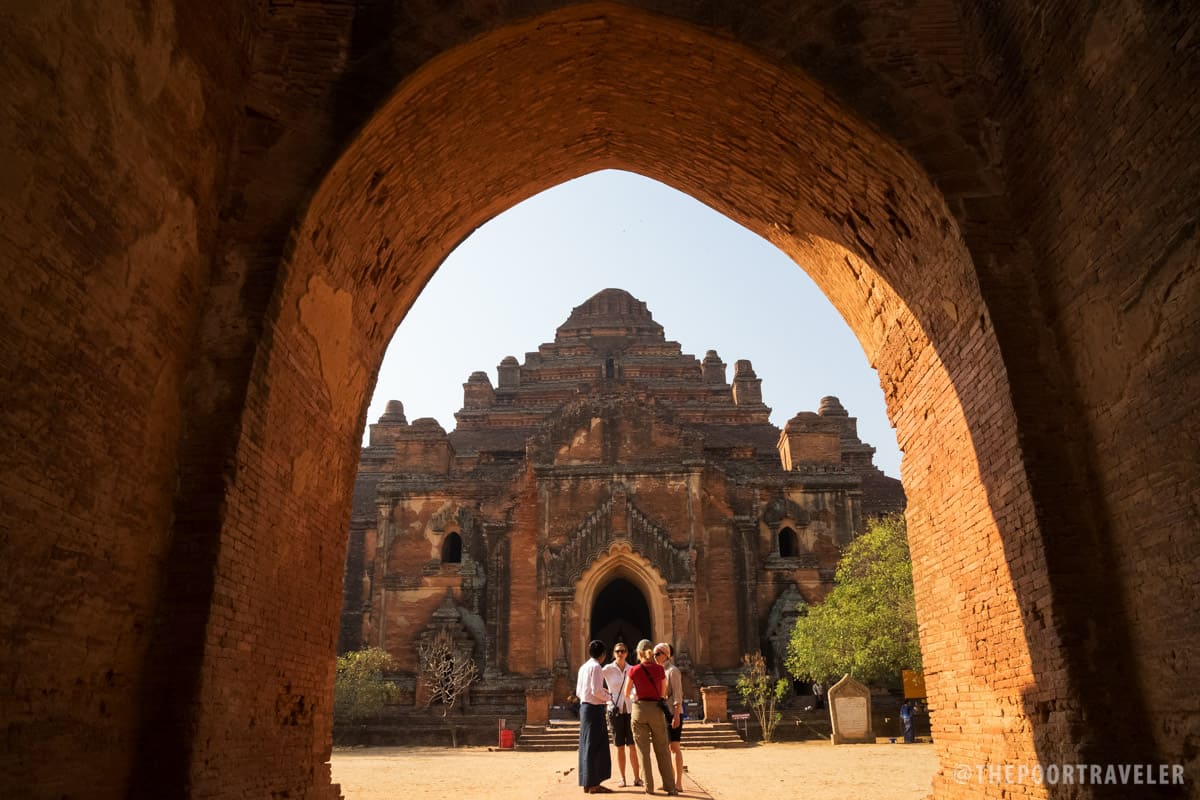
Old Bagan. The largest of them all, but still incomplete. Despite its size, it took me quite a while to find it. LOL. When you’re feasting your eyes atop Shwesandaw Pagoda, there’s no way you will miss this because it’s massive and unique. Built in 1167 the reign of King Narathu, it is widely believed as an atonement for assassinating his King father and elder brother.
4. Thatbyinnyu Temple
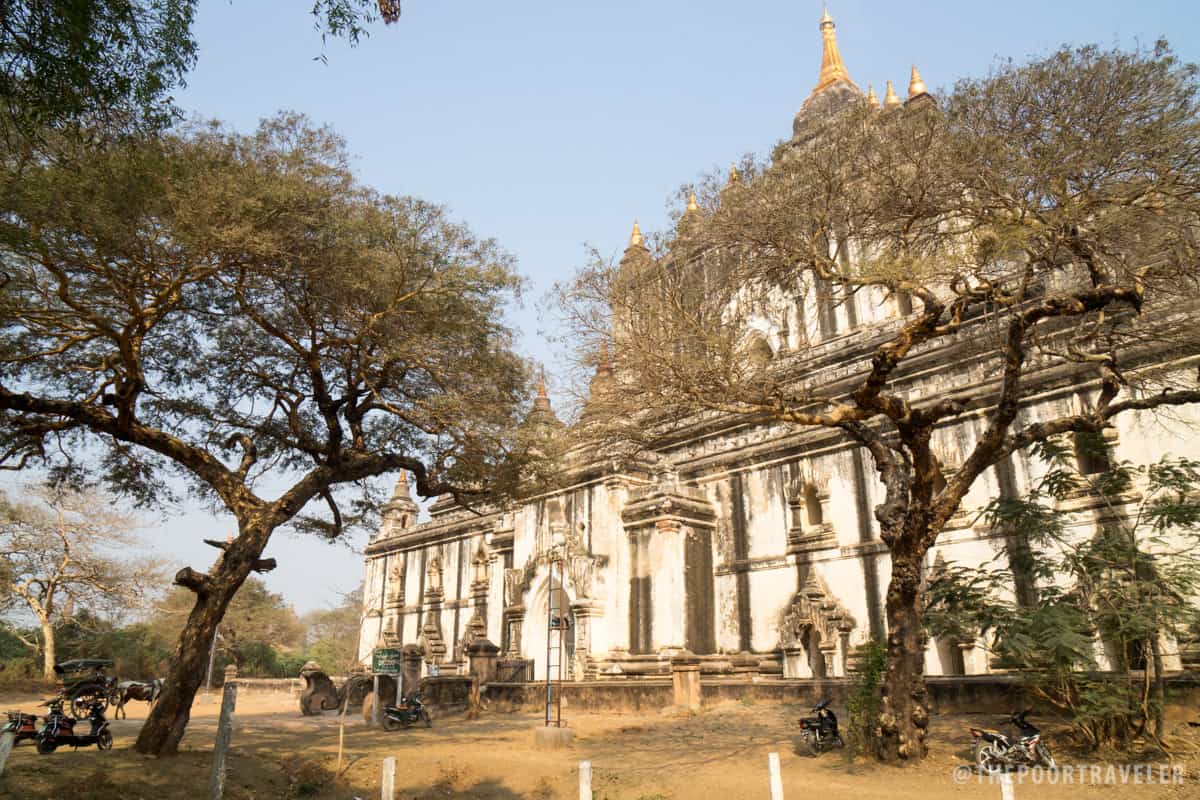
Nyaung U. Also known among the locals as Sabbannu or “the Omniscient”. Completed in the mid-12th century under the orders of King Alaungsithu. It’s one of the most crowded sites during our visit (probably because it’s easily accessible from Nyaung U where most visitors stay). Souvenir shops surround the temple.
5. Htilominlo Temple
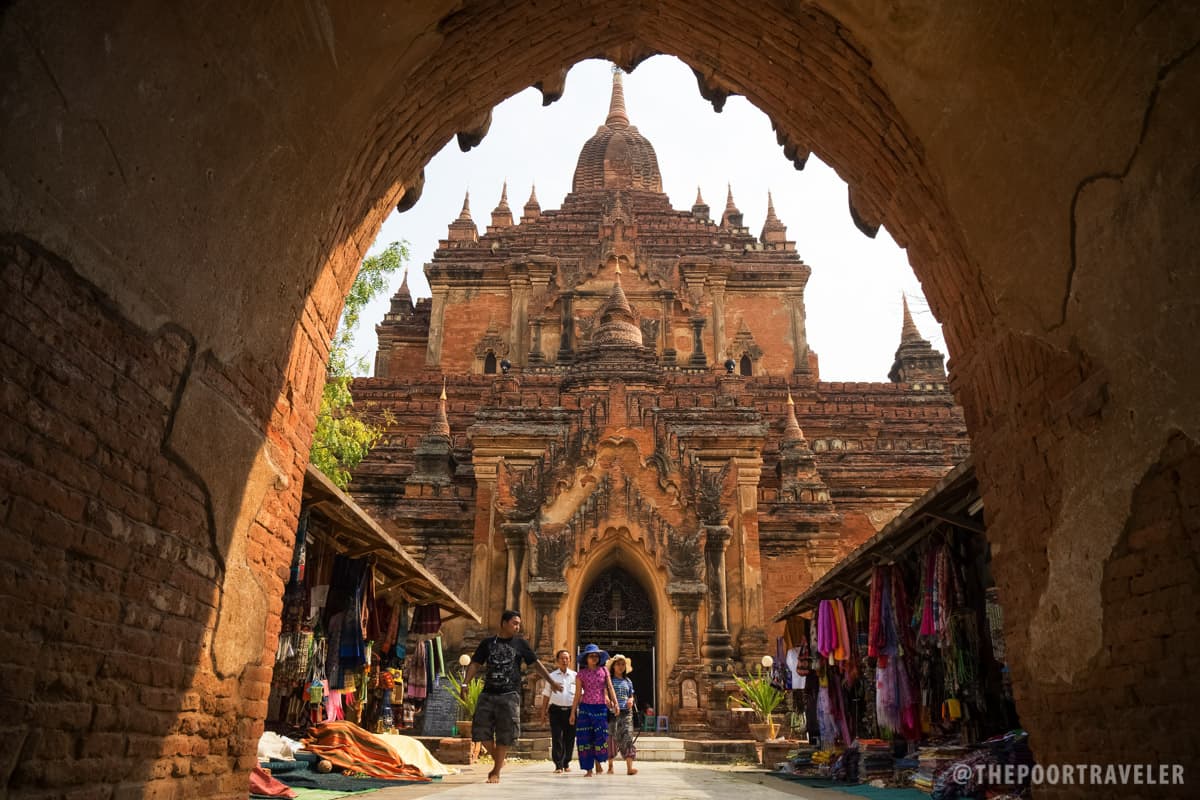
Named after King Htilominlo, who was responsible for its construction in 1218. Like many other Bagan temples, this 3-story temple has a statue of Buddha in each of its four gates.
6. Shwezigon Pagoda
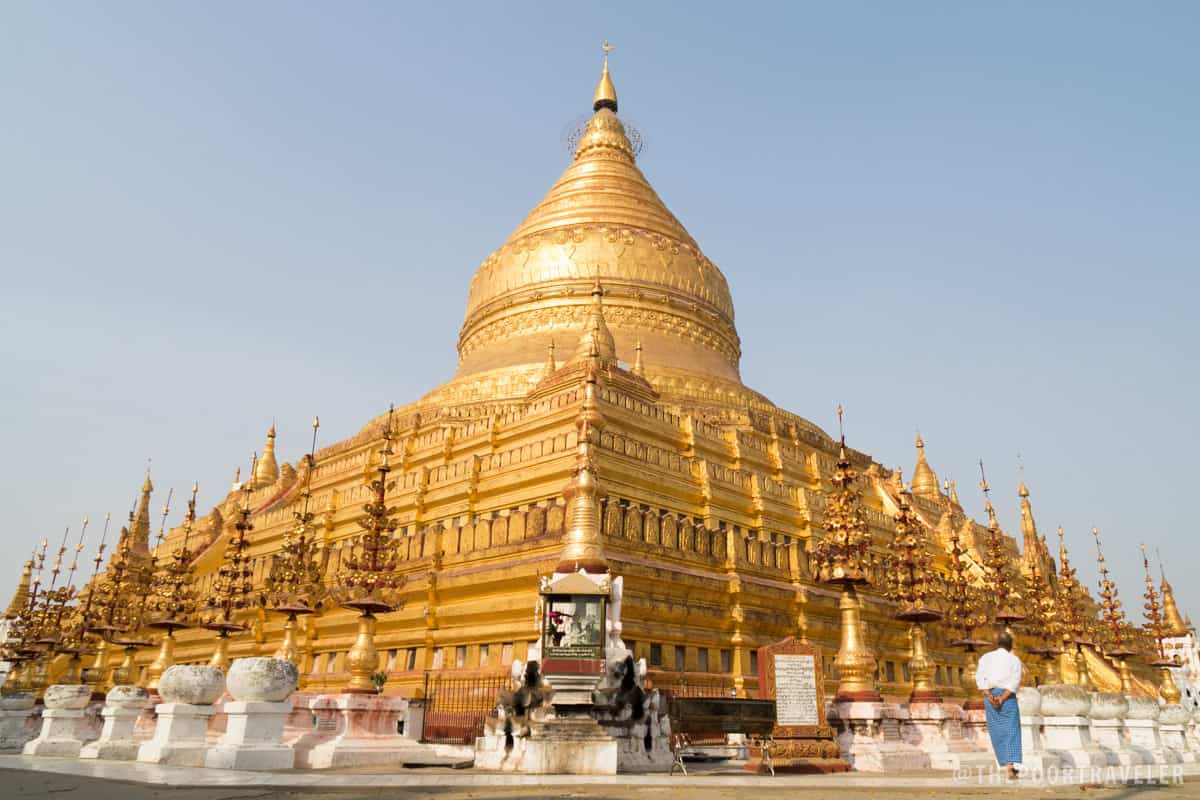
Nyaung U. This stunning gold leaf-covered pagoda has become the benchmark for other Burmeses stupas. Its construction began under the rule of King Anawathra in 1059 and finished in 1102 during the reign of King Kyansittha. According to legend, it houses bone and tooth remains of Gautama Buddha.
7. Sulamani Temple
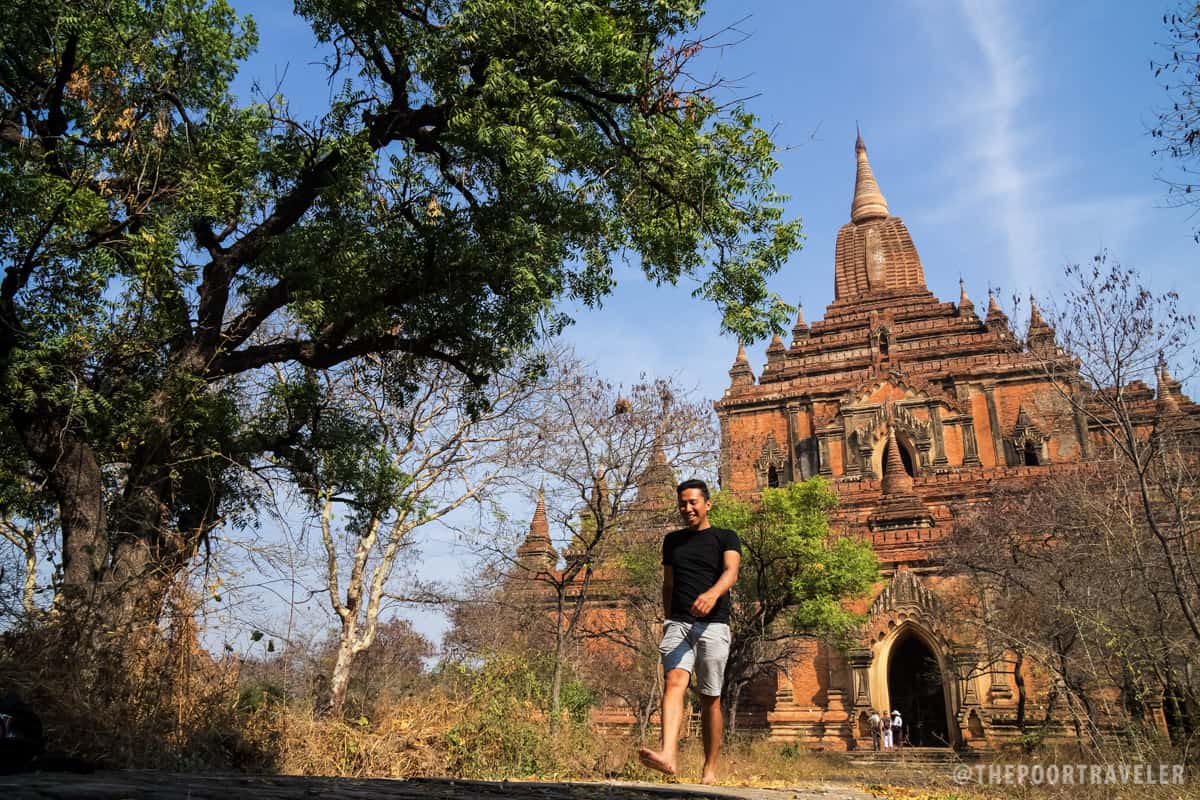
Erected in 1183 by King Narapatisithu, this brick and stone temple was the model for the Htilominlo Temple. It’s my favorite temple because of its crown-like design. The silhouette of this temple is a beauty when viewed at sunrise.
2️⃣0️⃣1️⃣6️⃣•8️⃣•3️⃣
